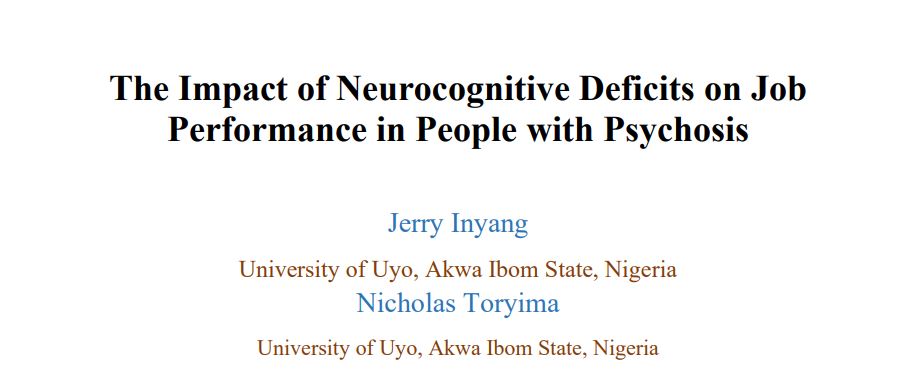The Impact of Neurocognitive Deficits on Job Performance in People with Psychosis
Abstract
Psychosis is a severe mental disorder characterized by a loss of contact with reality, often accompanied by hallucinations and delusions. People with psychosis often experience neurocognitive deficits, which can negatively impact their ability to perform in the workplace. These deficits can include problems with attention, memory, and executive function. This can make it difficult for people with psychosis to complete tasks, follow instructions, and interact with colleagues. Research has shown that neurocognitive deficits are a major predictor of poor job performance in people with psychosis. Studies have found that individuals with psychosis who have poor neurocognitive function are more likely to have difficulty with job tasks, have lower job satisfaction, and have a higher risk of job loss. There are several potential explanations for the link between neurocognitive deficits and job performance in people with psychosis. One possibility is that the symptoms of psychosis themselves, such as hallucinations and delusions, can interfere with an individual's ability to perform in the workplace. Additionally, the medications used to treat psychosis can also have negative effects on neurocognitive function. Despite these challenges, people with psychosis can still lead successful and fulfilling lives, including in the workplace. There are several interventions that can be effective in helping individuals with psychosis manage their symptoms and improve their neurocognitive function, such as cognitive remediation therapy, and vocational rehabilitation. These interventions can help people with psychosis to acquire the skills and support they need to perform well in their jobs and achieve their career goals. Neurocognitive deficits can have a significant impact on job performance in people with psychosis, but with the right interventions and support, individuals with psychosis can still be successful in the workplace. Further research is needed to better understand the nature of these deficits and to develop more effective interventions to improve job performance in people with psychosis.

Downloads
Published
How to Cite
Issue
Section
License
CC Attribution-NonCommercial-ShareAlike 4.0



